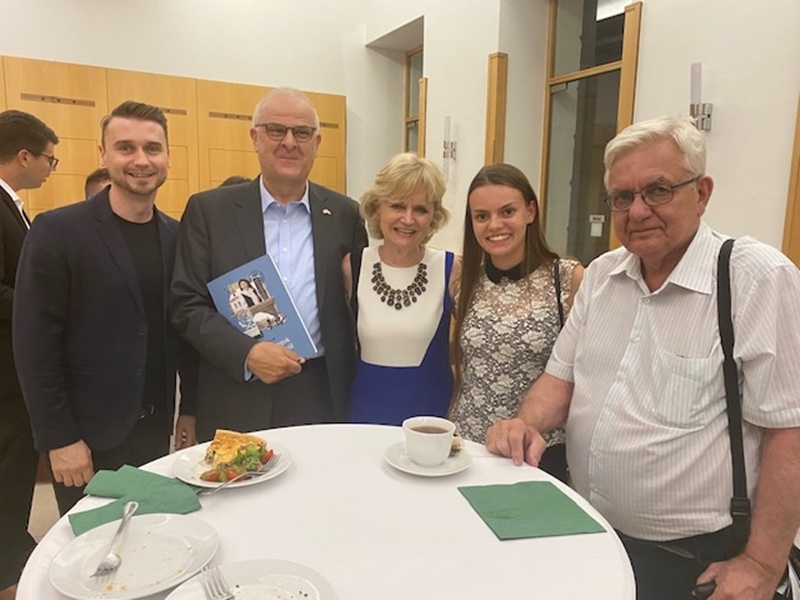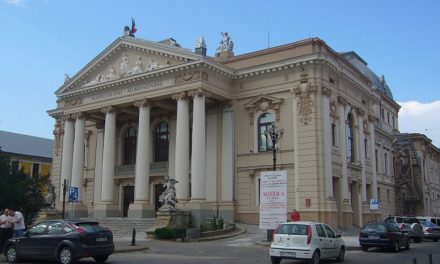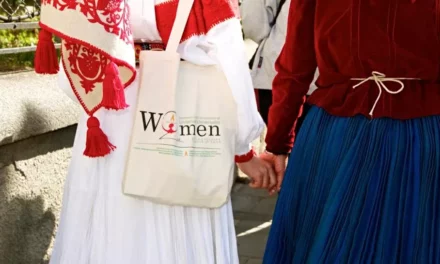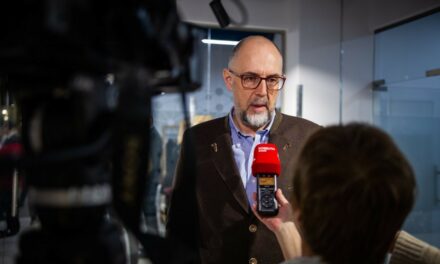In 2020, on the occasion of the 100th anniversary of the Trianon peace decree, the Canadian Rákóczi Foundation announced a competition for young people living in the Carpathian Basin: write what they think is the key to Hungary's survival, share their thoughts about the common European future and the lesson that Trianon gave us up.
book Friss hangok a periferiezár was compiled from the best of the applications received Zsuzsa Papp-Ayker, president of the Canadian Rákóczi Foundation and editor-in-chief of the volume published in both Hungarian and English, was pleased to mention:
the competition had an incredible response, in one month almost a hundred articles and five short films were received, in which young people expressed themselves in a wonderfully positive and constructive tone.
The managers of the Rákóczi Foundation selected 36 articles from these, supplemented by the field work of six young Canadian Hungarians in the volume. The book was published not only in Hungarian but also in English so that other language communities could learn about Trianon's history and its consequences.
Dr. Zsuzsa Papp-Aykler then quoted from the writings of Hanna Peresztegi, who pointed out that when she crossed the border, she was filled with pride not only when she saw a statue of our great king, but also when she saw living heroes in front of her and was able to talk to them. "Because yes, if someone does not give up and says that I am Hungarian, then that person is a hero," he wrote.
The president's wife pointed out: there are such heroes sitting here among us, who stood up for their Hungarianness and suffered,
then he welcomed the politician from the Highlands, Miklós Duray, the writer-historian György Dupka from Subcarpathia, and Ferenc Kalmár, the ministerial commissioner responsible for neighborhood policy, who is from Transylvania.
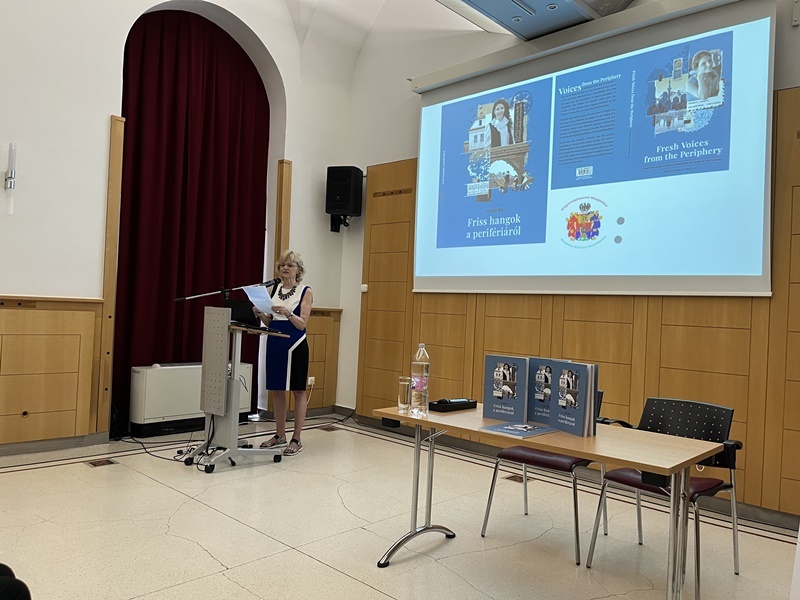
Dr. Zsuzsa Papp-Aykler, president of the Rákóczi Foundation, presented the book
Zoltán Csadi, born in Galanta, the head of the foundation in Hungary, presented the book, highlighting that the Hungarian Awareness Movement Camp was started in 1994 under the auspices of the Rákóczi Foundation to introduce young people across the border to the history and landmarks of Hungary and to provide them with a kind of leadership training so that when they return home work at the head of the community for the prosperity of the local Hungarian youth.
Zoltán Csadi also reminded that the Rákóczi Foundation was the first to receive the European Union's Károly Award in 2008 for its Students Without Borders program, and that the aim of the book is to make the voices of young people living in minority groups heard as far as possible.
After that, several applicants quoted from his writings in film credits. Martin Vivien from Transcarpathia stated: "there are no Hungarians across the border, only Hungarians in the Carpathian Basin!"
With touching words, the young girl described their everyday struggle for the free use of the mother tongue, for Hungarian education, for the free practice of our culture, against workplace and official discrimination, and for equality.
"And the way we fight is what we do most for our future, so that our descendants live in a Carpathian basin where they no longer have to fight to remain Hungarian," he stressed.
Genovéva Svingola also discussed the difficulties of being a minority, but added: being a true Hungarian is such a burden that those who carry it a lot get stronger. He stated that despite the difficulties, he would never leave his homeland.
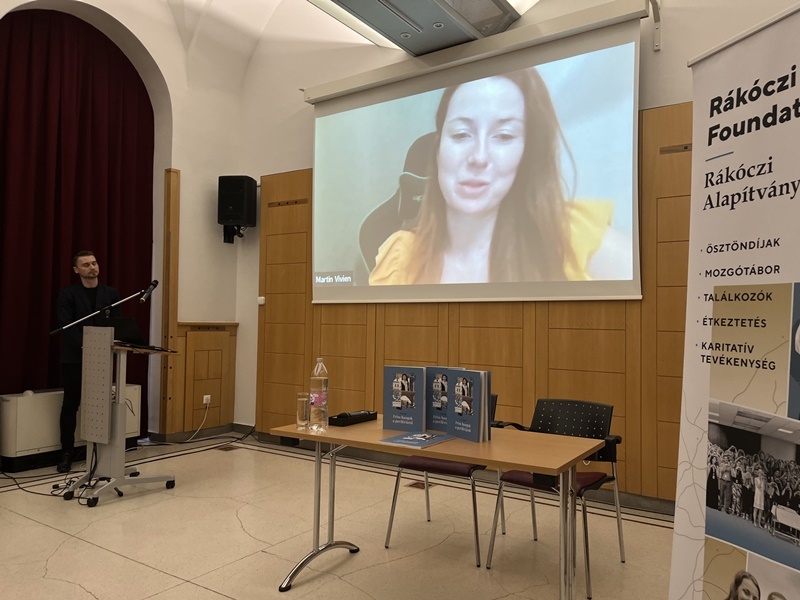
Zoltán Csadi, head of the Rákóczi Foundation in Hungary, also spoke to one of the authors, Martin Vivien
Hidi Evelin Kitti also emphasized that Hungarians living abroad are regularly attacked by offensive attacks; nevertheless, one must try to rise above this and live peacefully side by side, respecting the identity and culture of the other people. The main means of our survival is to pass on the Hungarian language, to know our history, to enrich our culture, and to encourage us to stay in our homeland, he said.
According to Erika Ködöböcz, the Trianon losses cannot be compensated, but our mother tongue, our historical past, and our cultural heritage live on indelibly within us. We have a responsibility for our country and for our children's sense of Hungarianness to strengthen this country.
András Diósady, the executive vice-president of the Rákóczi Foundation, pointed out: as a Canadian Hungarian, he lives in two cultures, but he is not really at home in either of them," he emphasized. He believes that many students at the camp felt the same way, but there was one important difference between them: he was never hated in Canada's multicultural society for being a part of another culture in his own country. Fortunately, in the camp, he can give the young people the positive experience that belonging to a different people does not cause hatred, but the recognition that they strengthen the majority society with their culture.
In our opening picture from the left: Zoltán Csadi, head of the Rákóczi Foundation in Hungary, dr. Ödön Király, former Toronto foreign trade attache, dr. Zsuzsa Papp-Aykler, president of the Canadian Rákóczi Foundation, Réka Antal, head of the foundation's highlands, and politician Miklós Duray
Source: Róbert Balás/Felvidék.ma

